- Home
- Deborah Smith
The Stone Flower Garden Page 11
The Stone Flower Garden Read online
Page 11
“They’re law books.”
“Law books?” She flipped open the book to a marked page. “Accessory,” she pronounced slowly and dramatically. Karen rolled her eyes. “What’s that?”
“It means you didn’t do it but you can go to jail, anyway.”
She once again rolled her eyes at my strange interests, shut the book, then yawned and kicked off her loafers. Karen curled up on the window seat with her feet in my lap. I rested both hands on my pale-brown cousin’s yellow-trimmed socks, my fingertips touching the warm golden skin of her ankles, thinking how much I loved her. I stared out the window once more. I missed Eli desperately but could not bear to set foot in our garden again. I couldn’t confess to him, couldn’t confess about Clara and Great-Grandmother Esta, whorehouses and Swan and Matilda and what lay beneath the loam of the Stone Flower Garden, to anybody.
At that point I wouldn’t have minded being put in the electric chair as an accessory to murder, but I didn’t want to incriminate Swan and Matilda, too. What would Karen do without her own grandmother in a world as cruel as ours? So I couldn’t tell anyone, or ask anyone’s advice.
No one. Not ever.
I was set in stone.
One week before Christmas Eve, a fisherman spotted Clara’s Trans Am sunk in twenty feet of water in Briscoe Lake. The big mountain lake was an hour’s drive west of Burnt Stand, inside the vast Nantahala National Forest. Land of the Noonday Sun, the Cherokee Indians called that forest, set in mountains so steep their shadows hid everything except a sports car.
“We’ve got the car out and the state crime lab boys are lookin’ it over,” Chief Lowden, the head of our police force, reported to Swan. “So far, they haven’t found anything.” I sat on the living room divan nearby, listening as calmly as a judge. Chief Lowden, a big, burly, redheaded man known for benevolence mixed with practical brutality, kept frowning and looking my way. “Miss Swan, do you think Darl ought to hear all this?”
“My granddaughter isn’t an ordinary child,” Swan answered. “Go on.”
“Well, ma’am, we’re bringing in divers to search the lake. For hmmm, well, for a body.”
Swan nodded calmly, as if he were talking about a stranger, not Clara. “You may find one.”
“You said your sister left here the evening she was seen at Neddler’s Place.”
“Yes. She told me she was driving back to Chicago. That’s the last I saw of her. I didn’t know she was going to the bar on her way out of town. But I wasn’t surprised.”
“Ma’am, I realize you and Clara aren’t close, but wouldn’t she have called you when she reached Chicago, just to let you know she got home safe?”
“No. We often went years without speaking.”
He sighed and nodded. Everyone in town knew Clara was our family outcast. Her damaging influence and our family’s sordid past swirled around us; even marble walls couldn’t keep that out. “I’m thinking she got a wild hair and tried to go cross-country to the interstate,” Chief Lowden went on. “Somehow she made a detour to the lake. The forestry service says the gravel road was open to visitors around that time. Looks like she drove off a little wooden bridge over a cove nobody visits much.”
Swan didn’t blink. “My sister was reckless. It’s possible she was drunk when she left Neddler’s.”
“I do remember her totaling two or three vehicles when she was drinkin’ as a teenager.” He winced. “Sorry.”
“It’s all right. I’ve never pretended to understand her motives. What she might have been doing at Briscoe Lake alone is beyond my imagination. In fact, I don’t want to imagine it.”
“No, Miss Swan, you sure don’t.” Chief Lowden, who owed his new patrol car and the five-man police department’s recently renovated offices to a donation from Hardigree Marble, spent a minute or two apologizing for the bad news. Swan inclined her head in a regal acceptance of the sympathy. He left with his hat in his hands.
I began to shake. Swan walked over to me, cupped my chin in her hand, and looked down at me almost sadly. “Forget everything except the truth you want to live with,” she said. Then she went to a massive, marble-topped bureau and poured herself a glass of wine from a cut-glass decanter with an elaborate H etched into its silver stopper. Swan took a deep swallow of wine and shut her eyes. When she opened them any lingering concern had vanished. “Remember that, Darl. Your life is your reputation, and your reputation is your fate.”
I sat there on the divan, scraping my fingernails against my raw palms.
When he heard the news that Clara hadn’t gone back to Chicago after all, Eli bent his head on his arms, and cried.
Everyone in town was abuzz with the news from Briscoe Lake, where divers found no trace of Clara’s body. The unfolding drama fueled even more talk about her lurid revelations concerning our family, the Wades, and Matilda. Still, Swan’s pride wouldn’t allow her to cancel the annual Hardigree Marble Christmas party, a soiree so entrenched in our town’s traditions that we were celebrating its fiftieth year.
“Is she going to send Jasper Wade away from here?” I asked Matilda.
Matilda nodded and looked away. “After the holidays.”
So the week before Christmas I stood beside Swan, her in a soft gold midi dress and me in pink with red holiday trim, inside the door of a cavernous, heated revival tent set up in a clearing beside the quarry. Several hundred people—company employees, their families, the town’s mayor and other notables, pretty much anyone and everyone of consequence in our immediate universe—milled among tables of food and eggnog. A hired Santa and his hired elves entertained the children with small gifts of toys and candy. A raised dance floor occupied the tent’s center, under basketball-sized clusters of mistletoe and red ribbon. Multicolored Christmas lights dangled from the tent’s steel rafters. A small dance band played holiday music.
“Welcome,” Swan said formally to each entering guest, most of whom were modest country people who blushed and stammered.
“Greetings,” I said.
I ached with tension and disappointment. Eli and his family hadn’t arrived and must not be coming. “There they are,” Karen whispered. She stood behind me, near Matilda, who kept her on such a short leash those days I rarely got to see her, either. Looking like a sweet, pale-mocha elf in a green-and-gold dress, she still had no clue the social controversy involved anything but Clara’s disappearance.
My heart raced as Eli, Bell, Annie Gwen and Jasper finally showed up at the tent’s garland-draped entrance. The family was dressed in their Sunday best. Bell brightened at the sight of my smile but tugged nervously at the hem of a floppy jumper. Her brown hair was held back by a plastic band bearing a sprig of plastic holly and red berries. Annie Gwen looked pale but stoic in a simple brown dress with a plaid jacket. Jasper stared straight ahead, his rugged face set like a statue’s, yet women craned their heads at the handsome sight of him in a suit and tie. The suit may have come from the Sears catalog and the tie from the sale bin of the Burnt Stand Thrift Shop, but he had become the stuff of notorious fantasy.
I had eyes only for Eli. He wore a blue suit like his father’s, with a plain red tie askew and tightly knotted. The hems of the pant legs were already too short for his ankles, and his thick, bony wrists showed at the end of the jacket sleeves. He burned me with a look that searched me for a thousand answers, his eyes going dark with concentration behind his glasses. I quivered inside from the need to talk to him. Suddenly I knew how it felt to be grown at ten years old, my childhood chiseled away. And I saw that his boyhood was gone, too, that he really was a tall and somber young man at 13. “Greetings,” I said brokenly.
He didn’t answer.
“Welcome,” Swan said to Jasper and Annie Gwen.
“Thank you, ma’am,” they said in unison, but their eyes were worried and scanned the crowd. People stared back, whispered, da
rted looks their way. For one frozen second Jasper looked past Swan and traded a searching gaze with Matilda. She held the scrutiny of her lover’s son with a grim dignity that matched his own. One golden hand clasped the perplexed Karen by a shoulder. Her other hand remained clenched against her deep burgundy dress.
Swan turned away, her mouth set, her face neutral. “Darl, come along. We have other guests.” She had upheld a Hardigree tradition of hospitality, but now her turned back said she was done with Jasper Wade. She made a very obvious gesture of rejection by gliding away into the mass of Hardigree employees. People pulled back on either side of her path like courtiers in a royal court, then closed behind her and looked at the Wades, deserted in her wake.
Swan was so accustomed to me following every command of hers that she didn’t look behind to see if I obeyed. I hadn’t. My heart was breaking. I could see the specter of total ostracism dawning on Jasper Wade’s face. His future in Burnt Stand was gone. The men he worked with knew he’d fallen from Swan’s grace, and like animals in a pack they were only waiting to see how long he’d fight not to be driven away.
“What’s going on?” Karen asked. “Why is everyone acting so strange?” A black boy, one of the sons of the sturdy black farmers who kept to themselves outside town, ran up to her and spit on the floor in front of her gold slippers. “Why don’tcha go play with your white kin?”
“What are you talking about, fool?”
“The Wades,” he spat. “They’re your kin. Whitey.”
It happened so fast even the horrified Matilda was not able to prevent it. An instant later Leon Forrest strode out of the crowd and the boy ran in fear. Leon halted before Karen like a hapless courtier in a cheap polyester Sunday suit. “It don’t matter what you are,” he said to her. “Don’t matter to me. It’s okay.”
Karen, her mouth open in astonishment, looked from him to me and then at her grandmother. “Come with me,” Matilda ordered, then clamped an arm around her shoulders and drew her out a side exit. Karen struggled and stared back at me desperately, then at Eli, who winced. Her expression crumbled. I knotted my hands and swayed. I was falling through the earth, my heart beating inside the marble bedrock below my feet. Matilda and Karen disappeared outside the side exit. Now Karen would learn everything I knew about our family. Except that we had murdered Clara.
I walked numbly to Eli. I watched his face. Anger became sadness became uncertainty became sacrifice. I knew it was too late for him and his family, and so did he. The little band across the way began to play some quiet Christmas song. I held out my hands. “Would you like to dance?”
He was a bad dancer—and always had been. He said nothing for a second, looking down at me with as much misery and reserve as my own. “The only place we belong together is in the Stone Flower Garden.”
That nearly killed me. I struggled with my voice. “No, I belong with you anywhere.”
A deep breath lifted his chest. He took me by one elbow and we stepped up on the dance floor. We stood there by ourselves, surrounded by the collective stare of the whole town. Eli and I faced each other, formed our hands and arms into some semblance of a formal embrace, then stepped slowly in rhythm with the music. When the song ended not one person in the audience moved or spoke. Surprise, disapproval, and fearful wonder filled the huge tent.
“Son,” Jasper Wade said grimly, from behind us. “That’s enough. We’re leavin’.”
Eli held my gaze for another full five seconds. His mouth moved in a whisper so low I felt it rather than heard it. “Greetings,” he said as a good-bye.
My eyes filled with tears. “Greetings.”
He and his family left the tent. Stranded in the middle of the dance floor, I turned and looked straight into my grandmother’s merciless blue eyes.
The next day, Mr. Neddler walked into Chief Lowden’s marble-walled office at the Burnt Stand police station. “Chief, I don’t know if this means anything, but it’s been worrying me since Clara Hardigree’s car turned up.” Creighton Neddler described Jasper Wade’s late-night confrontation with Clara outside the bar, how angry Jasper had been, how he’d shoved her hard enough to make her fall, how he’d threatened to kill her, and how determined she’d been to catch up with Jasper when she sped down the dark mountain road.
Chief Lowden repeated every word of that conversation as Swan escorted him into our elegant living room at Marble Hall. “Miss Swan,” he finished, “the last person to see your sister alive was Jasper Wade that night, and he had a reason to do her harm. I hate to think the worst, but I do.”
“Grandmother,” I said, as a warning. “Grandmother.”
Swan’s face said the Clara situation had grown serious beyond her patience. A coldness even more startling than her usual seeped from her perfect skin. “Leave the room, Darl.”
I shook my head. I wouldn’t let her do this to Eli’s father. But then, what could I say? We did it, Chief Lowden. Grandmother and Matilda and me. Let Clara drown in the koi pond and dragged her body through the woods in the night and buried her in the shade of the stone flowers. Take us all to prison. Oh, Matilda, Karen. I couldn’t drag them down with me. “Grandmother,” I repeated between clenched teeth. “Mr. Wade is not a murderer. I just know it.”
Her eyes seared me. The battle between us had become a silent, full-scale war. “I’m sure you’re right. But Chief Lowden is only going to ask Mr. Wade some questions.”
The chief nodded. “Little Darl, you’re a sweet girl who likes to think the best of folks, and I agree with you. I promise you this is just part of my job. I’m just goin’ to drop by the Stone Cottage after I leave here and talk to Jasper Wade and ask him to explain some things, and it’ll all be settled. Nobody’s going to get hurt, Honey.”
People are already hurt, I wanted to scream, but I was frozen inside my skin. I was learning what to give away and what to keep close. “All right,” I said. I manufactured a large sigh as if satisfied, then turned and walked slowly out of the living room under Swan’s intense scrutiny. When I was free to run, I raced to the back of the house, out the French doors, past the pool now covered with its winter tarp, and down the terrace steps into the woods.
A wooden trailer to haul their belongings. Some furniture and knickknacks. A new engine for the old truck. A bundle of cash—their savings account from the Bank of Burnt Stand—tucked safely in a cardboard box under the truck’s front seat. Those were the only obvious signs that three years of life in Burnt Stand had changed their lives for so much better and so much worse. Eli tried not to think how shabby they’d still look as they drove through town on their way out. He jerked the rope tight on a kitchen chair he placed atop the furniture stacked on the trailer. Tears stung the backs of his eyes. Misery and anger as deep as the cut of an ax separated him from the boy he’d been.
“That’s the last of it,” Pa said, slinging a coat into the truck’s front seat.
“Here,” Mama said, carrying a bulging cardboard box from the cottage. Eli leapt to take it from her. “Yes, Mama?” Her eyes were swollen from crying. “Can you find a place for this? Careful now. It’s turkey sandwiches and all the fixin’s. Put it in the camper where it won’t get mashed.”
“Yes, ma’am.”
This would have been their Christmas Eve dinner, to be enjoyed at their nicely set table while they watched a Christmas concert on television. Now it was traveling food pressed into cheap plastic containers and sandwiches in waxed-paper wrapping. Eli wanted to yell. He wanted to fight somebody. When he carried the box to the back of the truck, Pa was bent under the camper’s half-door rearranging trash bags filled with clothes and other possessions. Pa straightened, saw the family’s entire Christmas dinner crammed inside a box, and his face went white. “Goddamn,” he said slowly under his breath. He turned and slammed a fist against the side of the truck. “Goddamn my daddy, goddamn this town, and goddamn Clara Hardigree.”<
br />
Bell sobbed out loud at the violent words as she emerged from the cottage. She burrowed her face into a grocery bag overflowing with Christmas decorations in her arms. “I don’t want to leave here. It’s our home!” Mama ran to her and pulled her close.
This was the tableau the family presented when Eli turned wearily and saw Darl burst from the rhododendron thicket on the hill above the cottage. “Eli!” she yelled. He ran to meet her. Her long hair was tangled with twigs and bits of dried leaves, her face was flushed. She gasped for air. “I ran . . . as fast as I could. Eli, Chief Lowden is—”
“Get your breath. Shush.” He put an arm around her and helped into the yard. She moaned when she saw the packed truck and trailer. “No!”
Eli straightened with his last ounce of dignity. “Listen, you go away. You go back up that hill and don’t turn around. I won’t say good-bye. I won’t. I’ll write to you when we get somewhere.”
She clutched his shirtfront and shook him. “Eli, the police are coming for your daddy.”
Pa strode forward. “What?”
Godawmighty, Pa, Eli thought. Did you do it? Darl’s arrival was too late to give much warning. They already heard the sound of cars on the cottage’s narrow dirt road. Two tan-and-blue Burnt Stand police cruisers rumbled around a curve in the forest and pulled into the yard. Chief Lowden hoisted himself from the lead vehicle and waved at everyone with strained geniality. His brawniest officer, a thick-necked church deacon and ex-Marine named Canton, climbed from the second one.
Eli watched the officer unsnap the holster of his service revolver and lay one thick hand on the gun’s butt. Officer Canton had spoken to an assembly at the high school one day. He prided himself on taking the worst calls. In a town where one murder a year set a record, this was the worst call.
“Annie, keep everybody back,” Pa ordered. He met Eli’s eyes. “Son, you take care of your mother and sister.”

 Legends
Legends Hold on Tight
Hold on Tight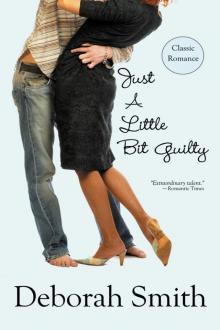 Just a Little Bit Guilty
Just a Little Bit Guilty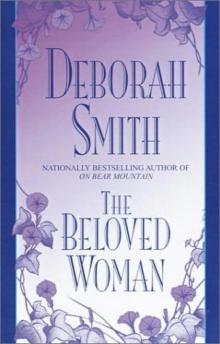 The Beloved Woman
The Beloved Woman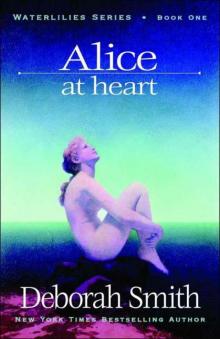 Alice At Heart
Alice At Heart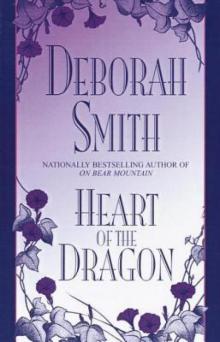 Heart of the Dragon
Heart of the Dragon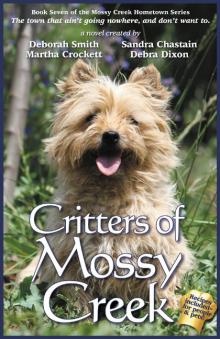 Critters of Mossy Creek
Critters of Mossy Creek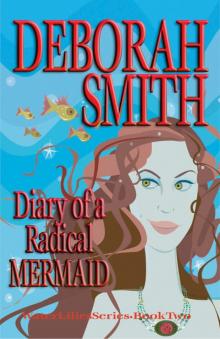 Diary of a Radical Mermaid
Diary of a Radical Mermaid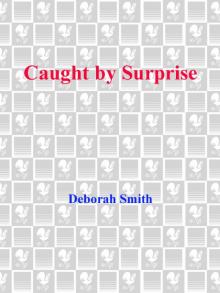 Caught by Surprise
Caught by Surprise Stranger in Camelot
Stranger in Camelot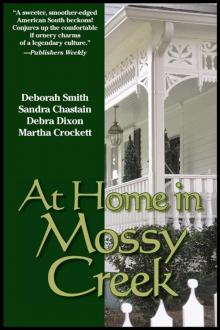 At Home in Mossy Creek
At Home in Mossy Creek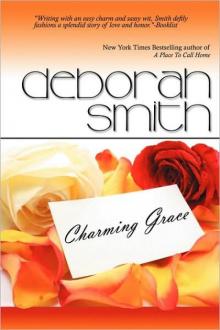 Charming Grace
Charming Grace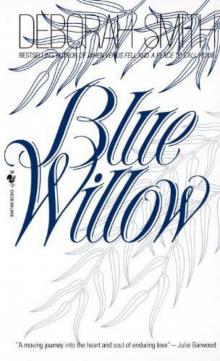 Blue Willow
Blue Willow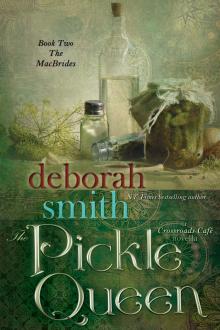 The Pickle Queen: A Crossroads Café Novella
The Pickle Queen: A Crossroads Café Novella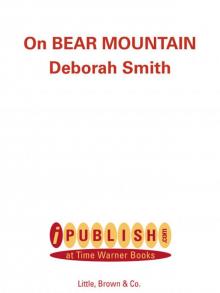 On Bear Mountain
On Bear Mountain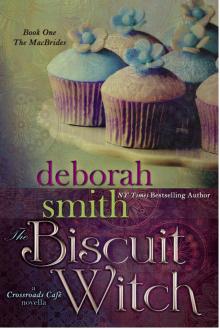 The Biscuit Witch
The Biscuit Witch Sara's Surprise
Sara's Surprise More Sweet Tea
More Sweet Tea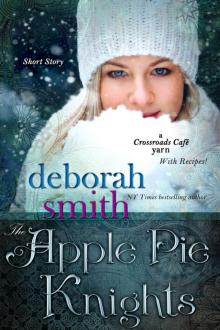 The Apple Pie Knights
The Apple Pie Knights The Silver Fox and the Red-Hot Dove
The Silver Fox and the Red-Hot Dove Sweet Hush
Sweet Hush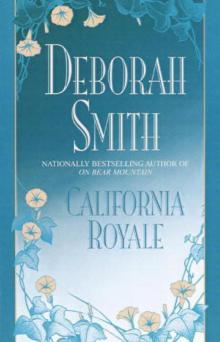 California Royale
California Royale Hot Touch
Hot Touch Miracle
Miracle The Stone Flower Garden
The Stone Flower Garden A Place to Call Home
A Place to Call Home Silk and Stone
Silk and Stone Honey and Smoke
Honey and Smoke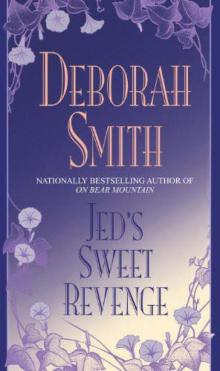 Jed's Sweet Revenge
Jed's Sweet Revenge Silver Fox and Red Hot Dove
Silver Fox and Red Hot Dove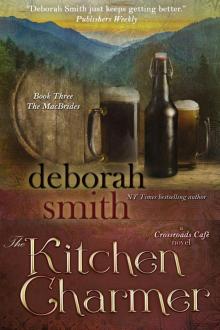 The Kitchen Charmer
The Kitchen Charmer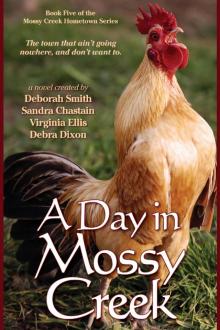 A Day in Mossy Creek
A Day in Mossy Creek Never Let Go
Never Let Go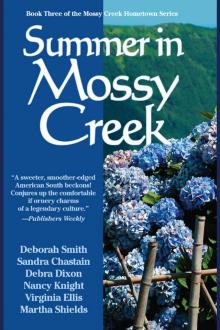 Summer in Mossy Creek
Summer in Mossy Creek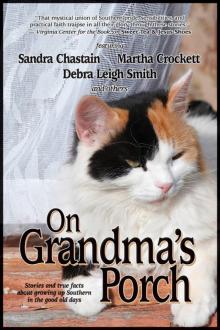 On Grandma's Porch
On Grandma's Porch The Crossroads Cafe
The Crossroads Cafe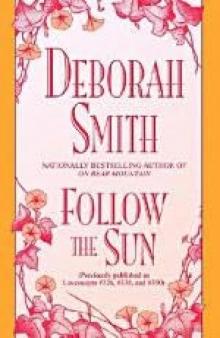 Follow the Sun
Follow the Sun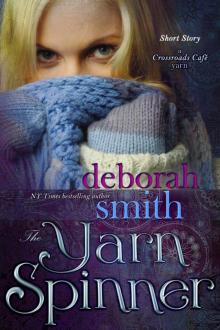 The Yarn Spinner
The Yarn Spinner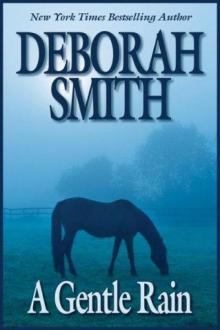 A Gentle Rain
A Gentle Rain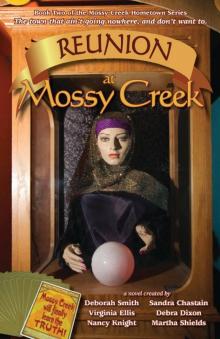 Reunion at Mossy Creek
Reunion at Mossy Creek